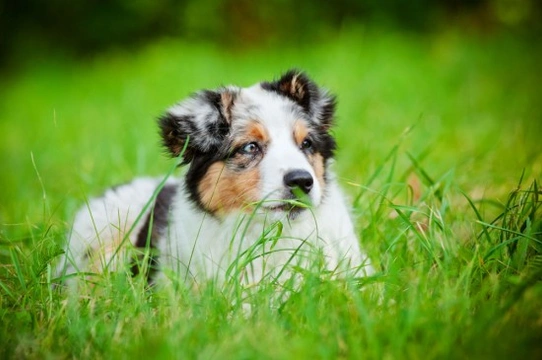
Why Do Dogs Eat Grass?
Most dog owners will have observed their dog eating grass at some stage, and this behaviour can certainly appear to be rather odd to the uninitiated; dogs are, after all, carnivores, and grass is not generally considered to make up a part of their staple diet!
The second thing that the owner of a grass-eating dog will likely have observed is that their dogs will sometimes cough up or regurgitate the grass and their other stomach contents shortly after ingestion. This may well lead to the owner wondering why their dogs will still persist in eating grass on future occasions when they have surely learnt from experience that it may make them sick!
If you have ever wondered why dogs eat grass and want to know more about this phenomenon, or find out if it is a problem, read on to learn more about dogs and grass eating.
Are dogs true carnivores?
Dogs certainly enjoy eating meat, and meat should form a large part of their diet. But dogs are not considered to be carnivores in the true sense of the word, which means that their staple diet will consist of more than just meat. Dogs are best described as omnivores (animals that eat a variety of both meat and plant matter) and are hunter/scavengers in their natural state, meaning that dogs eat a wide variety of different foodstuffs from different sources and naturally have a very varied diet.
Dogs will in fact eat a wide variety of plants and vegetables out of choice, although this explanation doesn’t go very far towards explaining why dogs will eat grass, a foodstuff that they are possibly going to bring back up after ingestion!
Why do dogs eat grass?
The fact that grass eating sometimes leads to vomiting is in fact one of the main reasons for why many dogs eat grass in the first place. Dogs eat grass to purge their digestive systems, and they may do so for a variety of different reasons, including:
- To ease nausea or feelings of sickness; much as how people who feel nauseous often feel much better after they have actually vomited
- To ease the pain and discomfort of bloating or excessive stomach gas
- To relieve gastro-intestinal upset
- To clear a blockage in the digestive system
- Due to general feelings of unwellness such as may be caused by the presence of a virus or bacteria
If your dog is feeling unwell for any of these reasons, they may be showing other signs of distress and asking to be let out urgently. When you comply, you will probably be waiting for them to go to the toilet, the most obvious reason for frantically clamouring to go out, and so seeing your dog head for the nearest patch of fresh grass and starting to eat it can be confusing for the uninitiated.
As with people, getting the odd feeling of sickness, gas or discomfort is a normal fact of life, and so as long as your dog only behaves in this way a couple of times a year, it is not cause for concern. However, if your dog often seems distressed or frequently eats grass in order to vomit, there may be an underlying veterinary condition in play, and you should get your dog checked out by your vet for assessment and diagnosis.
As well as eating grass with the specific intention of vomiting, many dogs will eat grass now and then or when out on walks simply as a matter of course, and not in sufficient quantities to cause regurgitation. Some dogs simply enjoy eating grass, and this is not a problem in itself.
In this situation, your dog will generally be quite selective about the type of grass that he wishes to eat, and spend some time sniffing about to find the perfect blades to snack on! He will usually look for tall, wide-bladed dark green grass of the type that often grows around fence posts and borders where the lawnmower and frequently traversed paths do not keep it cut down to a low level.
Is eating grass dangerous to dogs?
Eating grass in and of itself is not dangerous to dogs at all. Your dog will be able to select the type of grass that he eats, and will know what to avoid as part of this selection process. However, you should also pay some mind to the grass that your dog is eating, and avoid allowing them to eat grass in any areas that may have been treated with pesticides or other chemicals. Also, if slugs or snails are rife within the grass, inadvertent consumption of these creatures could possibly lead to lungworm, a potentially serious condition in dogs.
Should you prevent or discourage your dog from eating grass?
The simple answer to this question is “no;” grass eating is normal behaviour for dogs, even when accompanied by vomiting. Eating grass can aid in digestion, and may in fact have various benefits for dogs that consume a small amount of it on a regular basis. Grass eating can also help to ease digestive discomfort and provide an essential and natural way of purging the body when sick.
Keep an eye on the patterns of your dog’s grass-eating behaviour and talk to your vet if your dog’s grass eating often leads to vomiting; but otherwise, relax! While the grass-eating habit can seem fairly odd to the uninitiated canine enthusiast, it is in fact totally natural and not cause for concern.



